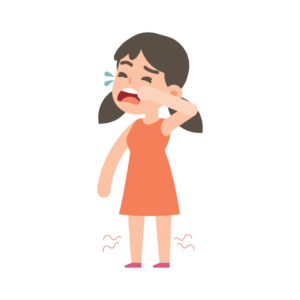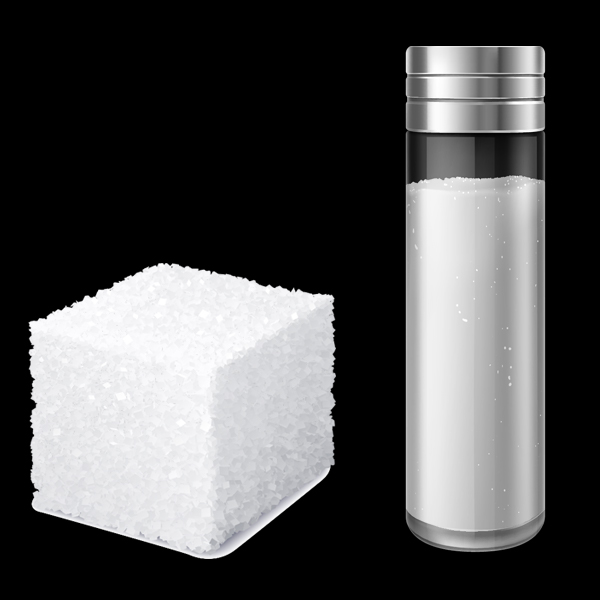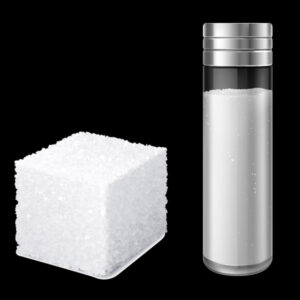
Should you add sugar/salt to your child’s food?
nathaniclinic1
April 8, 2024

We all love sugar & salt as condiments in our food. If the chef forgets to add salt to the food, almost all of us would return the dish with a litany of complaints. And who can resist topping off a great meal with an even better dessert? The sweeter, the better. Yet, the American dietary guidelines advise us to cut down on salt intake to less than 2.3 gms per day and up to 30 gms of sugar per day in adults.
Why is salt bad for us (for God’s sake)?
More than ample evidence suggests that our bodies don’t require anything more than minimal amounts of sugar and salt in our diet. Humans started adding salt to our food just 5000 years ago (to put things in perspective – we have been around for a few million years ago. Our consumption of salt today is 10 to 20 times greater than it was 5000 years ago. Since we have evolved over millions of years, our bodies are geared to conserve every microgram of salt since we never knew when our next meal would be, and that meal was the only source of salt and other minerals. As a result, any excess salt harms our bodies insidiously, slowly but surely.
What happens to all the salt that we eat?
Well, most of it is excreted into the urine, which is the vast majority of it. Since the human body was not built to take this much salt load, the direct consequence of consuming these vast quantities that far exceed what we need is a general rise in blood pressure.
The Yanomamo Indians are probably the most primitive native tribe in the world. They live in about 100,000 square miles along the border between Venezuela and Brazil. They have no access to salt, sugar, alcohol, or dairy products. Their blood pressure is 90/60 mm Hg throughout their lives. Contrast this with most modern humans whose blood pressure steadily rises with increasing age. And, these are healthy humans, mind you! The sobering fact is that 1 in 4 males and 1 in 5 females are hypertensive. Hypertension is a silent killer and is responsible for heart disease, strokes, renal disease, among many other ailments.
What about sugar?
Almost all of us are aware that sugar is bad for us, and with a media blitz, health authorities worldwide have made all of us aware of the dangers of sugar and refined carbs consumption. Early diabetes, excessive weight, inflammation, fatty liver disease, and higher blood pressure are linked to excess sugar consumption.
But that is in adults, you may say, what is the relevance to children?
Well, the foundation of adult dietary habits is what we consume in childhood. Not only is the taste for both sugar and salt an acquired one, but it is also universally addicting (much more addictive than smoking, alcohol, or other ‘vices’). If you don’t believe that, try going off salt and sugar in your diet! You will soon be reduced to tears.
Eating habits, once formed, are almost impossible to break except for the most determined of all human beings.
Dis-moi ce que tu manges, je te dirai ce que tu es.”
[Tell me what you eat, and I will tell you what you are].
Anthelme Brillat-Savarin
Wouldn’t food without sugar or salt taste horrible! Bland and unpalatable!
As an adult, I, too, would agree with that statement. But, you must realize that we agree to this based on our past experiences and our established addiction to salt and sugar. I distinctly remember that when I was out on a weight reduction mission, the first thing that my dietitian told me is to cut out sugars and refined carbs in my diet. I love tea, and I couldn’t imagine a cup of chai without sugar! Yet, once I got used to no sugar, and I have to drink a cup of tea with sugar in it, I recoil and can’t bring myself to gulp it down!
Remember that your infant has never tasted added salt nor added sugar.
You can’t miss something that you have never experienced before!”
Current recommendation of salt & sugar intake
Our Consulting Specialities
Recent Posts


Subscribe Our Newsletter
The premier children’s clinic and general vaccination center in Chembur, Mumbai
Make an Appointment
- 8 AM - 8 PM , Monday - Saturday
Call Us Today
9987084813
Online Doctor Consultation Nathani Clinic
Copyright © 2024. All rights reserved.


